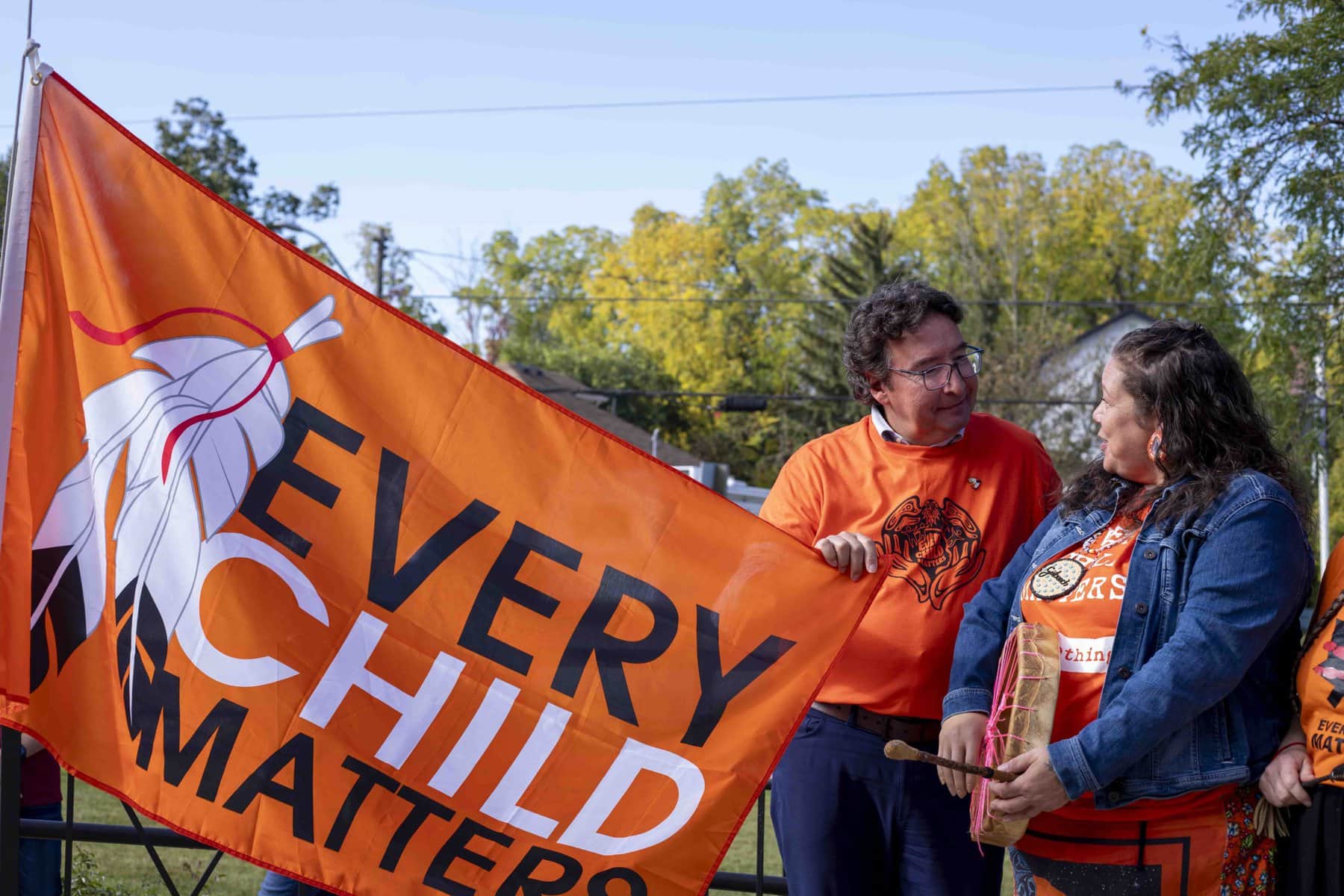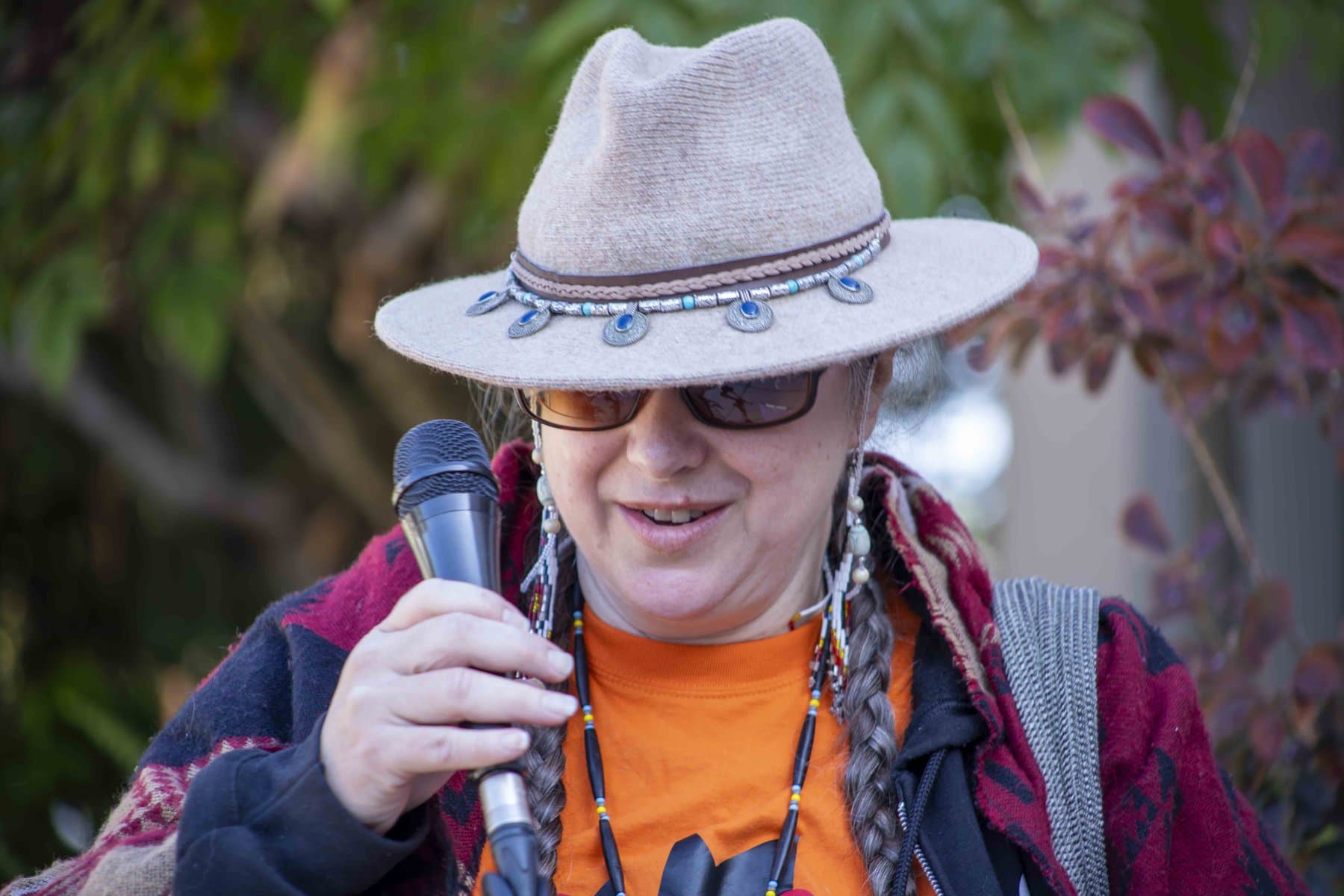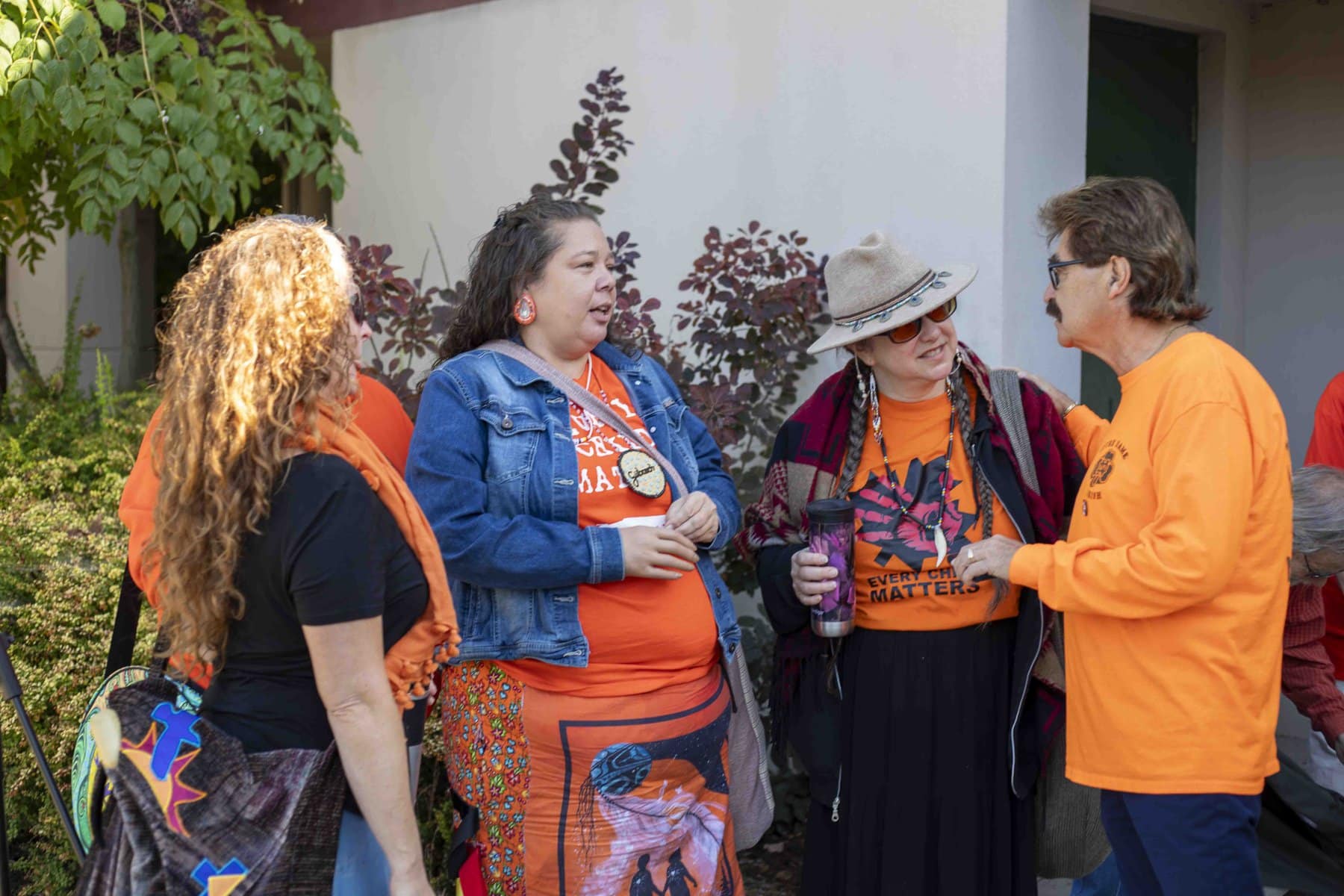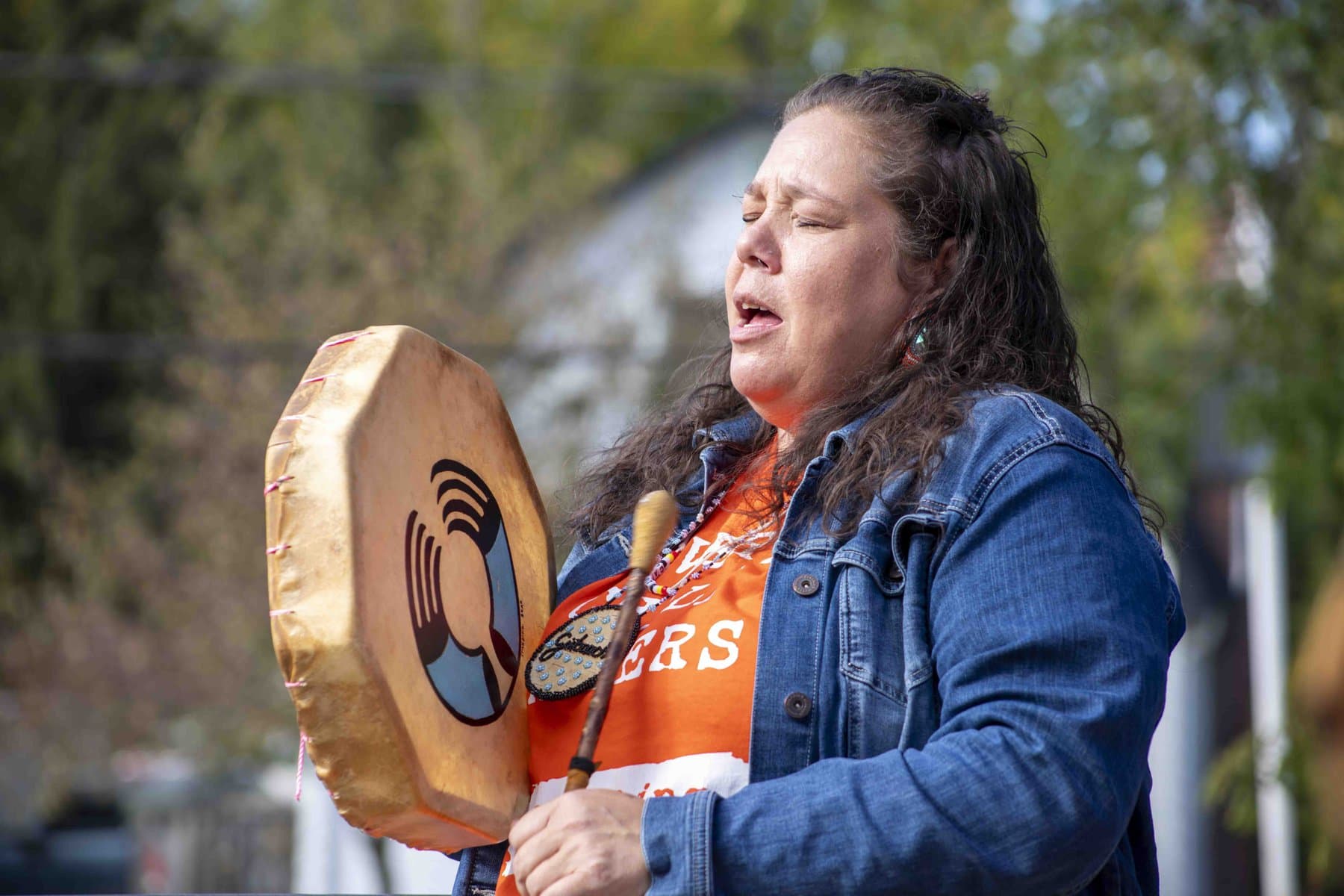The Town of Niagara-on-the-Lake may have reached a proverbial fork in the road in its relationship to Indigenous communities.
The town raised the Every Child Matters flag to half-mast last Friday in honour of Truth and Reconciliation Day.
A cohort of town staffers, residents and visitors joined a group of Strong Water Singers at town hall for the ceremony.
The Strong Water Singers, an award-winning drum group led by Indigenous women, and the members at the town ceremony were led by Sabrina Shawana, an Eagle Clan woman of the Anishinaabe.
“When humanity comes to that fork in the road, it’s going to be up to the non-Indigenous people which way to take,” Shawana told a crowd of about 20 to 30.
The right path, she said, would bring the white and Indigenous communities into “eternal brotherhood.”
The other would lead to the same destruction brought by the settlers of Canada, she said.
Because of this, Shawana said she has a responsibility to show non-Indigenous people the beauty of her culture.
She and her fellow drummers decided to sing “The Longest Walk,” which traces its roots to a 1978 march for Indigenous rights that began at Alcatraz.
The United States National Park Service said on its website more than 300 Indigenous people participated in a five-month trek from the former island prison to Washington, D.C.
The marchers protested 11 pieces of United States legislation that violated their treaty rights.
“Those rights that they fought for 45 years ago are still the same rights that we’re fighting for today,” Shawana said.
Rights like clean drinking water and equitable treatment continue to be at the forefront of Indigenous activism.
Another issue highlighted by Shawana concerns Indigenous status.
Under the Indian Act, Indigenous women lose their status and all associated rights if they marry a non-Indigenous partner.
“That’s crazy to me,” she said.
Audra Maloney, a Mi’kmaq traditional healer who also spoke at the ceremony, decided to focus on the path to healing.
“Many traumas have occurred in the residential school system,” she said, “Yet, I have hope.”
Maloney, who also works with the Indigenous Diabetes Health Circle, said she has seen people in her community “release the heavy weight of trauma” by reaching out to their community and culture.
“Even through the struggle and trauma” Maloney said her community carries its strength in its prayers, pipes and ceremonies.
Truth and reconciliation is about “building respect for another’s way of seeing the world,” she said.
“You can be a friend, we can remember and respect our treaties together,” she said.
In a conversation with The Lake Report, Maloney said events like the flag raising are good for ticking off boxes but she wonders what people are doing to reconcile with Canada’s history the other 364 days of the year.
“Get curious. Learn to engage in a meaningful way,” she said.
Maloney recommends people who are interested seek out a community elder, offer some sacred tobacco and ask questions.












